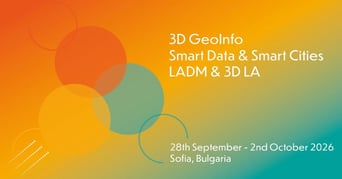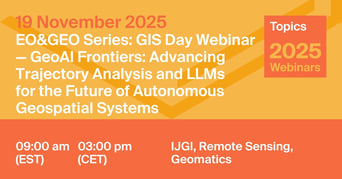- 2.8Impact Factor
- 7.2CiteScore
- 34 daysTime to First Decision
News & Conferences
Latest News & Announcements
Latest Conferences
Propose a Conference Collaboration
Promote and publicise your upcoming conference with MDPI.
All News & Conferences
News & Announcements
MDPI’s Open Access Program Reaches 1,000 Institutions Worldwide
18 February 2026
News & Announcements
Acknowledgment to the Reviewers of ISPRS International Journal of Geo-Information in 2025
6 February 2026
News & Announcements
MDPI INSIGHTS: The CEO's Letter #31 - MDPI 30 Years, 500 Journals, UK Summit, Z-Forum Conference, APE
2 February 2026
News & Announcements
MDPI at AGU 2025: Celebrating Open Science and Academic Excellence
26 January 2026
News & Announcements
MDPI’s Newly Launched Journals in December 2025
9 January 2026
News & Announcements
ISPRS International Journal of Geo-Information | Highly Cited Papers in 2024–2025
7 January 2026
News & Announcements
Meet Us at the EGU General Assembly 2026, 3–8 May 2026, Vienna, Austria
6 January 2026
Partner Conference
3D GeoInfo | Smart Data and Smart Cities | LADM & 3D LA
28 September - 2 October 2026
News & Announcements
Article Layout and Template Revised for Future Volumes
11 December 2025
News & Announcements
Meet Us at the Conference on Geoinformation 2025, 24–28 November 2025, Mérida, Yucatán, Mexico
18 November 2025
of 22










